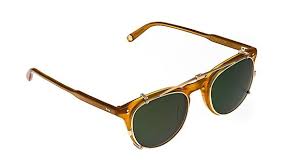 Half a dozen folks, including me, stood on a viewing platform overlooking the marsh at Ding Darling National Wildlife Refuge on Florida’s Sanibel Island a couple of weeks ago. Much to my disappointment, I hadn’t spotted any gators at the refuge, but it had been a day filled with glorious coastal birds. Ibis. Egrets. Herons. Cormorants. Ducks. Anhingas. Enormous white pelicans. Gorgeous roseate spoonbills.
Half a dozen folks, including me, stood on a viewing platform overlooking the marsh at Ding Darling National Wildlife Refuge on Florida’s Sanibel Island a couple of weeks ago. Much to my disappointment, I hadn’t spotted any gators at the refuge, but it had been a day filled with glorious coastal birds. Ibis. Egrets. Herons. Cormorants. Ducks. Anhingas. Enormous white pelicans. Gorgeous roseate spoonbills.
But birds weren’t the reason we were staring down into the marsh. A man had spotted a needle-nosed gar and was leaning over the rail to point it out to his wife. Plop. Into the water went his clip-on sunglasses. Everyone gasped. The glasses floated for a brief moment and then slowly sank into about three feet of the brackish water.
Immediately, everyone on the platform began offering advice. Me first. “Good thing they’re just clip-ons,” I said. “You can get new ones for about five dollars.”
Not true, the man—whose name, I soon found out, was Jim–told me. The clip-ons were custom-made for his old and very expensive eyeglasses and were essentially irreplaceable. The discussion then turned to how to fish them out of the marsh. The first idea, of course, was to find an appropriate tool. No one had a fishing pole. No one had a net. We couldn’t even find a big stick. One young woman offered her expandable metal drinking straw, an amusing but ridiculous suggestion.
Then my eye fell on what just might be the perfect tool: a sturdy palm branch with a forked end. It wasn’t quite long enough to reach from the bank to the glasses’ resting place, but it was close. If someone would venture into the water just a bit, perhaps the glasses could be snagged.
Though southwest Florida is temperate in early January, it’s definitely not swimming weather. All the onlookers, including Jim, were wearing long britches. Except one. A young man named Sam had arrived at the viewing platform on a bicycle. Sam wore flip-flops and knee-length shorts. “I don’t mind wading in,” he said. He walked ankle-deep into the march and thrust the palm branch out as far as it would reach. It wasn’t even close to the glasses. Sam rolled up his shorts as high as he could and took another step. Nope. One more step and he was waist-deep. And still, try as he might, the glasses were still unreachable. Not only that, but his left flip-flop came off and sprang to the surface of the water. He retrieved it and returned to shore to put it back on.
Jim had left the viewing platform and was standing near Sam. “You’ve done enough,” he said. “No sense in you getting chilled. They’re my glasses. I’ll go in after them.”
Sam shook his head and, without a word, plunged head-first into the marsh and groped around for the glasses. He came up empty the first time, but on the second attempt emerged with them firmly in hand. The group of bystanders, which by this time had grown quite large, whooped and hollered and jumped up and down. A woman in the crowd fetched a towel from her car and offered it to Sam. “You’re a real hero,” she said. “Your dad’s lucky to have you.”
Sam looked surprised. “Jim’s not my dad,” he said. “I’ve never seen him before. But I’m no hero.”
Perhaps not. Sam didn’t run into a burning building or swim out into a riptide or throw his body across an IED. He was just a good Samaritan willing to help a stranger in need. But sometimes that’s enough. I gave Sam a high five as I walked past him on the way to my car. “Karma’s going to get you for this, you know,” I told him.
Sam just smiled.
(January 19, 2020)